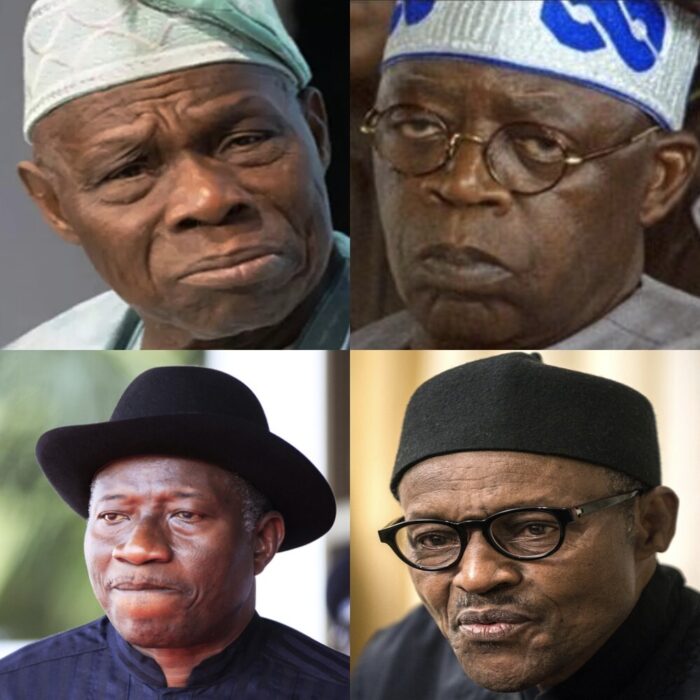By Nnaoke Ufere, PhD
The recent policy decisions by the Tinubu administration regarding removal of the fuel subsidy and floating the exchange rate have been widely discussed in Nigerian policy circles for years. These policies have been attempted by previous administrations but ultimately abandoned due to their detrimental consequences.
Former President Goodluck Jonathan, for example, initially embraced fuel subsidy removal but quickly reversed course due to its adverse impact on the economy and the welfare of Nigerians.
Throughout Nigeria’s history, there have been numerous exchange rate regimes, ranging from fixed to auction, floating to managed floating, and back to fixed and parallel, before returning to floating once again.
Despite these policy shifts, the country has struggled to address its underlying issues such as corruption, dysfunctional leadership, and the absence of a diversified, productive, and export-oriented economy.
I refer to these policies as “Zombie reforms” because they exhibit a pattern of untimely demise and subsequent resurrection in each administration, despite their detrimental effects. These policies typically focus on superficial symptoms rather than addressing the underlying root causes of economic issues, and frequently meet an early death without accomplishing their intended goals.
These policies hold an allure for politicians as they offer the prospect of swift political victories aligned with campaign promises and superficial changes, even though they fall short in many aspects. Nevertheless, neither of these policy options adequately tackle the core economic challenges or enhance the overall welfare of Nigerians.
Therefore, it is crucial not to be swayed by the headlines surrounding the new reforms. Mr. Tinubu’s reforms are unlikely to live up to the hype because the side effects of the cure are worse than the disease.
In the following sections of this article, my primary focus will be on analyzing the reasons behind the probable failure of the fuel subsidy reform. I will reserve the discussion on the floating exchange rate policy for a future article on these pages.
Additionally, I will propose a well-rounded approach that aims to address the requirements of Nigerians while simultaneously providing the government with the necessary funds to fulfill its obligations.
Fuel Subsidy: Don’t Throw the Baby Out With the Bathwater
Contrary to the assertions made by Mr. Tinubu to the Nigerian people, his policy choices primarily benefit international creditors, who hold a staggering debt of $167 billion owed by Nigeria. These creditors prioritize their interests over the welfare of Nigerians. Furthermore, foreign companies and investors aiming to repatriate their earnings in dollars profit from these policies.
Undoubtedly, the misappropriation and corruption surrounding the fuel subsidy program cannot be ignored. In the previous year, the government allocated $10.4 billion for fuel subsidy, but an estimated $6 billion was misused or stolen, with only $4 billion being utilized for its intended purpose.
By addressing corruption and inefficiencies within the fuel supply chain, the government could potentially save $6 billion annually to service its debts while keeping the program alive. Although the identities of those responsible for fuel subsidy theft are known, the complicity of government officials involved in its administration diminishes the likelihood of recovering the stolen funds—there is a sense of camaraderie among thieves.
Rather than eliminating the sole benefit derived by ordinary Nigerians from the national oil dividend, the government should focus on implementing a well-managed and corruption-free fuel subsidy program that uplifts the population without discarding the benefits.
Eliminating the fuel subsidy at this critical juncture will worsen Nigeria’s high inflation, unemployment, and poverty. Tinubu’s announcements have already increased fuel and transportation costs, further fueling inflation and the cost of living for Nigerians.
This cost surge hampers productivity as employers cut hours, leading to a decline in output per worker-hour nationwide. Many SMEs are already reducing headcount, exacerbating the already high unemployment rates, especially among the youth. Collectively, these factors will detrimentally impact real GDP and worsen pain and suffering for the general population.
Removal of fuel subsidy has additional adverse effects, particularly on the local economy. Scrapping fuel subsidy essentially functions as a hidden tax burden on Nigerians and businesses. Many marginal small businesses are already shutting down. Small and medium-sized enterprises (SMEs) play a vital role in Nigeria’s economy.
Mr. Tinubu’s promise to invest the subsidy funds in infrastructure improvement, transportation, and cost reduction is misleading. In reality, some of the funds may be required for immediate debt servicing obligations or to reward political financiers, as alleged by the media.
The reality is that, contrary to Tinubu’s assertions, the proposed policy reform will not revive the economy or make life better for long-suffering Nigerians. Instead, it will contribute significantly to long-term economic distortions, inflation, unemployment, and poverty.
Undoubtedly, the decisions to remove fuel subsidy was externally mandated, reminiscent of the ill-fated and destructive Structural Adjustment Programs of the past. Nigerians will bear the brunt of the suffering without ever reaping the benefits.
However, this attempt to curry favor with international players is a recipe for disaster. It creates a false sense of progress when, in reality, the structural problems within the economy and the persistent corruption among the elite remain unchanged.
Ironically, it seems that the government finds it easier to target the already burdened Nigerian citizens who benefit from low-cost fuel. They are well aware that Nigerians tend to be passive and unlikely to voice their objections aggressively, allowing them to implement punitive policies without facing significant resistance.
But Nigerian economic history serves as a warning that sacrificing the welfare of millions of suffering Nigerians for the satisfaction of international creditors, investors, companies, and institutions like the World Bank and the IMF is an unsustainable strategy that will not endure.
A Balanced and Pragmatic Proposal
If the administration is genuinely committed to addressing the situation, it should consider dismantling federal character in national talent deployment, removing import controls, reducing burdensome business regulations, and eliminating preferential export subsidies to create a truly free market environment.
These measures would foster a more favorable environment for entrepreneurial Nigerians, encouraging investment and business operations while minimizing government interference, corruption, and social and ethnic conflicts. Improving access to funding for local entrepreneurs should also be a key focus for the government.
Nigeria can increase oil production, sales, and foreign currency generation by meeting its OPEC quota alone. However, oil theft and corruption loom as significant challenges. This is where the administration should direct its policy reforms, given the potential benefits.
If the administration genuinely aims to save money, it would be more effective to propose reductions in government borrowing and spending rather than burdening the general population with additional hidden taxes, as the removal of the fuel subsidy implies.
Simply cutting the bloated government bureaucracy by 20% and terminating futile projects and patronage-driven programs from the previous administration would be a positive and rewarding starting point.
In conclusion, instead of completely discarding the fuel subsidy program, a more efficient and corruption-resistant implementation should be pursued. These targeted measures, coupled with efforts to reduce government spending and create a conducive environment for entrepreneurship and investment, offer a more sustainable path toward economic growth and improved well-being for Nigerians.




